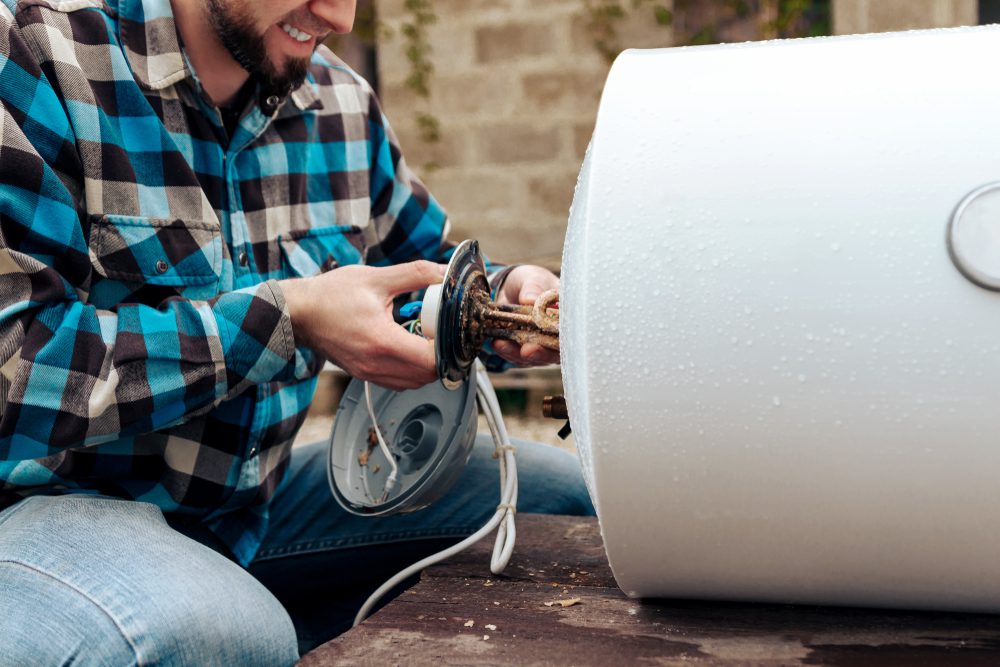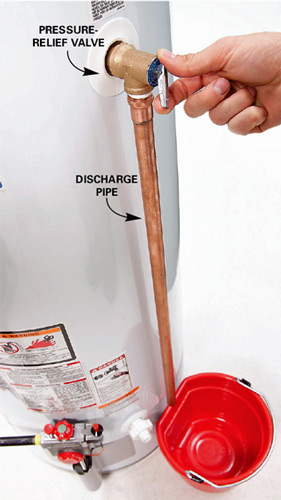Ways to Address the Common Water Heater Emergency Challenges
Ways to Address the Common Water Heater Emergency Challenges
Blog Article
Nearly everybody is bound to have his or her own rationale in relation to Warning Signs You Need Water Heater Repairs.

A water heater is among one of the most vital fundamental home appliances that can be located in a house. With hot water heater, you do not require to experience the tension of home heating water manually each time there is a need to wash, do the laundry, or the meals. Nonetheless, there is constantly a possibility that your hot water heater would break down similar to many mechanical devices.
It is very important to keep in mind any kind of little breakdown and also tackle it promptly before things get out of hand. Many times, your water heater starts to malfunction when there is a build-up of debris as a result of continuous usage. As a precaution, routine flushing of your hot water heater is suggested to avoid debris accumulation as well as protect against useful failure.
Usual hot water heater emergencies and how to handle them
Insufficient warm water
It might be that the water heating system can not sustain the hot water need for your apartment or condo. You could upgrade your water heating unit to one with a larger capability.
Changing water temperature level.
Your water heater can begin creating water of various temperature levels typically ice chilly or hot hot. In this scenario, the first thing you do is to make certain that the temperature level is readied to the preferred degree. If after doing this, the water temperature maintains altering during showers or other tasks, you could have a damaged thermostat. There might be a demand to change either the thermostat or the heating device of your hot water heater.
Leaky hot water heater tank.
A leaking tank could be an indicator of corrosion. It could create damage to the flooring, wall surface as well as electric gadgets around it. You could also go to danger of having your house swamped. In this scenario, you should switch off your water heater, allow it to cool, and carefully seek the resource of the problem. At times, all you need to do is to tighten up a few screws or pipeline connections in cases of minor leaks. If this doesn't function and also the leak persists, you might require to utilize the services of a technician for an ideal replacement.
Tarnished or stinky water
When this happens, you need to recognize if the concern is from the water or the container source. If there is no funny smell when you run cool water, then you are certain that it is your water heating system that is malfunctioning. The stinky water can be triggered by corrosion or the accumulation of microorganisms or debris in the water heater tank.
Final thought
Some homeowners ignore little warning as well as minor faults in their water heater system. This only results in more damages and a possible full malfunction of your appliance. You should deal with your water heater faults as soon as they come near avoid even more expenses and also unneeded emergency troubles.
With water heating units, you do not require to go via the stress and anxiety of home heating water by hand every time there is a need to take a bath, do the laundry, or the recipes. It may be that the water heating system can't sustain the hot water need for your house. Your water heating unit might start generating water of different temperature levels generally ice scalding or cool hot. If there is no funny scent when you run cold water, then you are certain that it is your water heater that is damaged. The smelly water can be created by corrosion or the build-up of microorganisms or debris in the water heater storage tank.
Common Water Heater Issues and What You Should Do
What Type of Water Heater Do You Have?
Before we begin it’s first important that you identify the type of water heater you have on your property. There are two main types of water heaters out there: conventional and high efficiency.
Both of these types of products typically use either gas or electricity to heat power. There are also solar water heaters that use a thermal collector on the roof or yard to heat the water.
While these models are not as common, they can cut heating costs in half. In this article, we will focus on conventional and high efficiency.
How Do My Electric and Gas Water Heater Work?
Though they look similar, electric and gas water heaters work very differently. It’s important to know their basic function because often problems can be specific to the heating source.
In the electric model, a thermostat on the side of the machine detects the temperature of the water in the tank. When the temperature needs to rise electricity flows to a heating element suspended in the water.
Gas models also use a thermostat device — typically with a mercury sensor at the tip and an additional sensor called a thermocouple. The thermocouple detects whether the pilot light is on and controls the flow of gas.
When the thermostat drops below the appropriate level gas is released which becomes ignited by the pilot light. The flame heats the bottom of the water tank which causes hot water to rise and cold water to drop.
This natural circulation continues until the water reaches the desired temperature. Then, the thermostat triggers the gas control valve to shut off the flow of gas.
What Are the Most Common Issues and How Do You Fix Them?
https://happyhiller.com/blog/common-water-heater-issues-and-what-you-should-do/

I recently found that blog posting about Warning Signs You Need Water Heater Repairs while scouting around the search engines. Make sure you take a moment to distribute this entry if you liked it. Thanks for going through it.
Plumbing woes? We help. Report this page